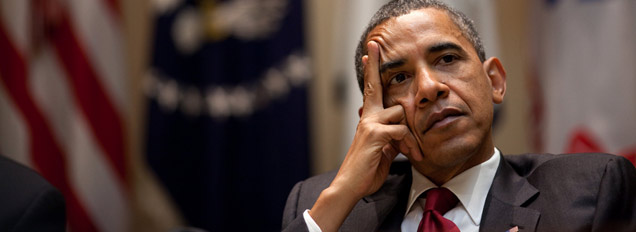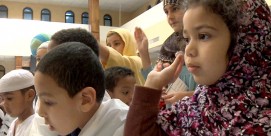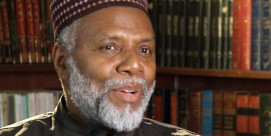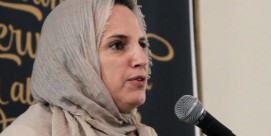Paul Dafydd Jones and Charles Mathewes: A New Religious Narrative for Obama
Barack Obama’s election in 2008 gave many people—Republicans, Democrats, and Independents alike—the hope that America was entering a new phase in its history. Just maybe the nation was about to do something remarkable: embrace a style of politics defined less by old arguments about race, religion, gender, sexuality, and culture and more by new visions of the common good.
Few would have predicted what’s happening now. A growing number of Americans believe, mistakenly, that the president is a Muslim, and most of them cite the media as the source of their information.

Of course, suspicion about Obama has been a problem since he first appeared on the national stage. Another complicating factor is the rise of a politicized brand of journalism which has blurred the boundary between fact and fiction in ways that would make even the most ardent postmodernist blush.
What’s new, too, is the failure of Obama and his team to handle matters effectively. Given that millions more people think Obama is a Muslim now than 18 months ago, we’re seeing a serious failure to communicate.
Let us be clear: we don’t think that, in principle, a Muslim president is at all problematic. Indeed, it’s profoundly worrying that the mere idea of a Muslim president is met with moral outrage. Beyond the not-so-subtle racism at work, the “secret Muslim” claim is empirically false and politically toxic, and it marks a refusal to heed the high ideals upon which this nation was founded.
Still, the question of the hour is this: how should Obama respond? Here’s our suggestion: the White House should discontinue its purely reactive approach to claims about Obama’s beliefs and undertake a sustained effort to have him tell his own story as a Christian believer.
In other words, Obama should talk publicly about what he believes and how he believes it. He needn’t do it all the time. He needn’t do it all that often. But when he does do it, he should do it simply, plainly, frankly, and deliberately.
So far, the president has made occasional remarks about his beliefs, but they’ve been just that—occasional and largely an afterthought to his public persona. His administration has proved astonishingly “unmusical” when it comes to religion. No one in Obama’s inner circle seems to understand how religious issues and themes are implicated in his presidency and how religion factors into domestic and international politics.
But isn’t Obama’s Christianity a private matter? Isn’t it peripheral to the real issues at hand? Not right now. The culture is desperate for adult guidance when it comes to religion. While citizens stand under no obligation to talk about their religious convictions, people expect more of the president, and this political moment requires more from this president, lest discussions about religion become still more coarse and vicious, and our political culture even more degraded.
We’re not suggesting Obama should talk about his faith for purely pragmatic reasons, although God knows—and Rahm Emanuel does, too—there are likely to be political advantages. He should recognize by now that if he won’t talk about his beliefs, his opponents happily will; politics, like nature, abhors a vacuum. There are sound civic reasons for doing this as well. The office of the presidency has a representative function. It is not just about the day-to-day running of the government. It’s about shaping public conversation on a variety of matters of common concern, religion included.
Nor are we asking Obama to be the believer-in-chief of American civil religion. We’re simply saying he should offer himself as one example in America today of what it means to believe. He should render his religious persona public, for the good of the republic as a whole.
A president willing to talk about his own faith could do some powerful civic good. Obama’s biography suggests he has much to offer. He has spoken movingly of his mother as someone who did not believe in God, but who epitomized a life well lived. He has intimate knowledge of Islam and other religious traditions and appreciates their richness in a way that has not hindered his Christianity—a serious believer who is seriously alert to the power of other beliefs.
He’s clearly given serious thought to religion as a reality in the world. In a speech he gave in 2006, he described politics as the art of what’s possible and religion as the art of the impossible—a thought-provoking idea, to say the least. Religiously, he embodies where the nation itself is headed, as American Christianity undergoes a period of dramatic transformation and the categories we typically use to talk about belief become less and less sufficient for describing the real dividing lines, generational changes, and demographic shifts we are experiencing.
What we are proposing, then, is for President Obama to tell us about his religious identity, and to do so in ways that befit his office. Despite the degraded condition of our public debate about religion, he has the opportunity to give voice to our collective desire to speak more openly, and more honestly, about the faiths that make us who we are—and thus to make out of those many faiths one nation.
Paul Dafydd Jones and Charles Mathewes teach religious studies at the University of Virginia.







